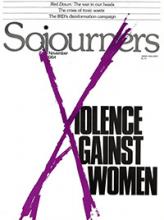This has been written in tears: Tears of a 4-year-old who doesn't understand what Daddy is doing. Tears of a 6-year-old who is told, "It won't hurt much longer." Tears of an eight-year-old who is told, "Stop crying it doesn't hurt any more," or, "If you don't stop crying, I'll give you something to cry about." Tears of a 10-year-old who hears, "If you don't do this to help me, I'll leave; and then you, your mother, and your brother will have no food or place to live." Tears of a 12-year-old girl who prays that God won't make her pregnant (and prays that prayer for seven more years). Tears of a 14-year-old who prays that God will wipe her father off the earth.
Incest is the subject I have more knowledge of than any other. It is also the subject that is the most difficult to write about. By so doing, I leave myself exposed, stripped of all pretenses of who or what I am, and therefore, totally vulnerable. But so vividly do I remember the abuse, so strongly do I understand the need to feel affirmed as a child of God, and so powerfully am I moved by the Spirit of God, that I am persuaded to bring light to a crime that must be an abomination unto God.
Most children, it seems, know little about fear. As a parent, I do everything in my power to protect my son from fearful situations. I suspect other parents do likewise.
But fear is a state of being that an abused child knows intimately. An abused child lives in fear created by someone who professes to love him or her.
Read the Full Article
